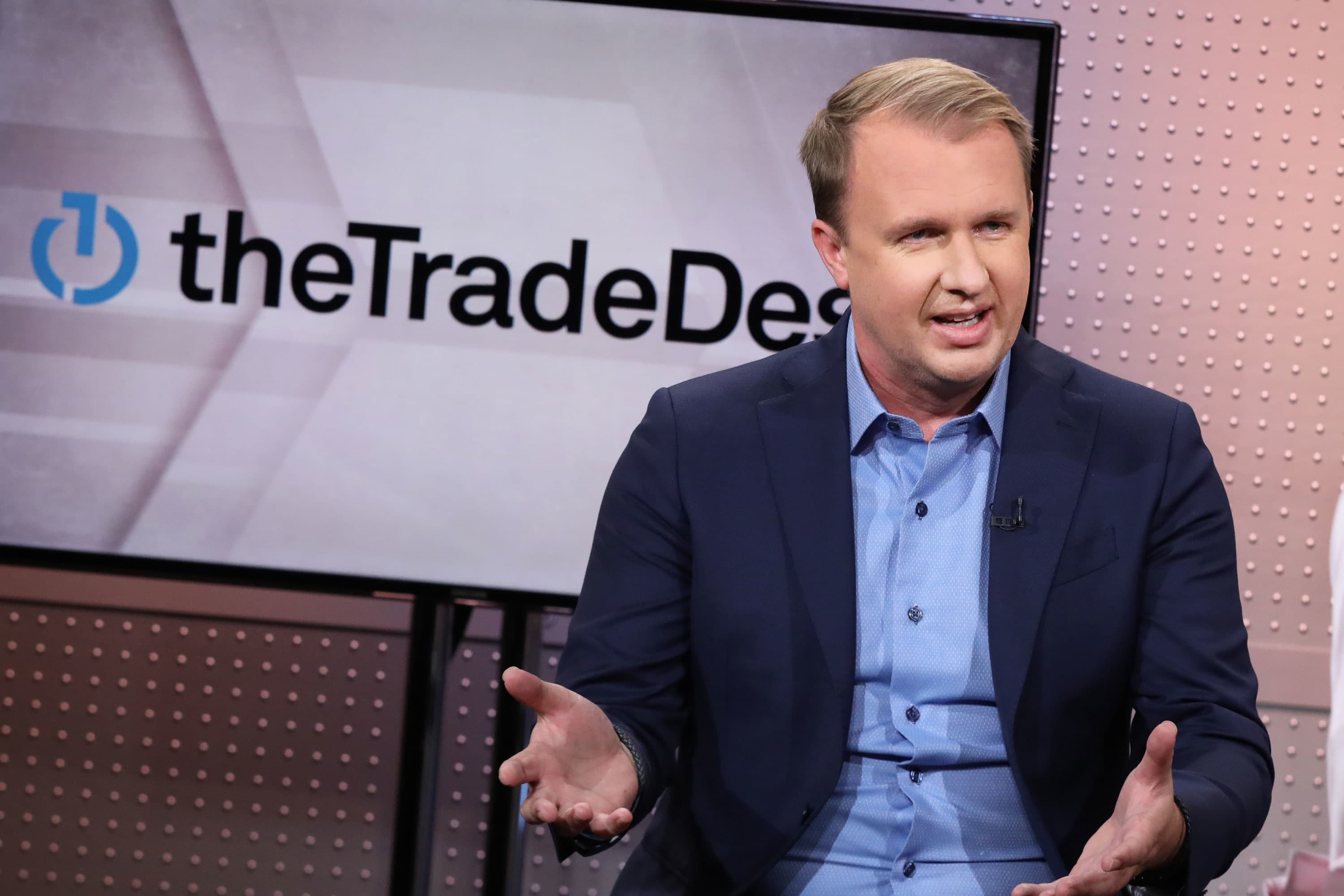Shares of The Trade Desk tank 25% after company reports earnings and upcoming stock split

Jeff Green, CEO of The Trade Desk
Scott Mlyn | CNBC
Shares of ad tech company The Trade Desk tanked more than 25% on Monday after the company reported first-quarter earnings and a 10-for-1 stock split.
Here’s how The Trade Desk performed versus Refinitiv estimates:
- Earnings: $1.41 per share, adjusted, vs. $0.77 per share expected
- Revenue: $219.8 million vs. $217 million expected
Citi analysts said that, while second-quarter revenue guidance of between $259 million and $262 million exceeded Wall Street expectations and revenue came in slightly above consensus, the beat just may not have been as big as investors were hoping for.
“We believe investors were looking for [a] bigger beat given solid 1Q results for GOOGL and ROKU,” the Citi analysts wrote Monday. Alphabet and Roku reported major earnings beats in recent weeks.
The company also warned of continuing uncertainty moving into the second quarter.
The Trade Desk sells technology that helps brands and agencies reach targeted audiences across media formats and devices and has a particularly strong presence in the connected TV, or CTV, market.
KeyBanc analysts said that compared with recent quarters, The Trade Desk’s results represent a “more modest degree of upside” in comparison with consensus estimates and that the earnings come in the wake of other companies that saw “meaningful upside” to estimates, such as Alphabet, Facebook and Roku. KeyBanc analysts suspected those factors could weigh on shares Monday.
The Trade Desk announced a 10-for-1 stock split. Investors who hold shares in the company as of June 9, 2021, will receive nine additional shares of common stock that will be distributed after the close of trading on June 16. The company will begin trading on a stock split-adjusted basis on June 17.
Stock splits are cosmetic and do not fundamentally change anything about the company, other than possibly making the shares more accessible to a larger number of investors because of their cheaper price.
— CNBC’s Michael Bloom contributed to this report.